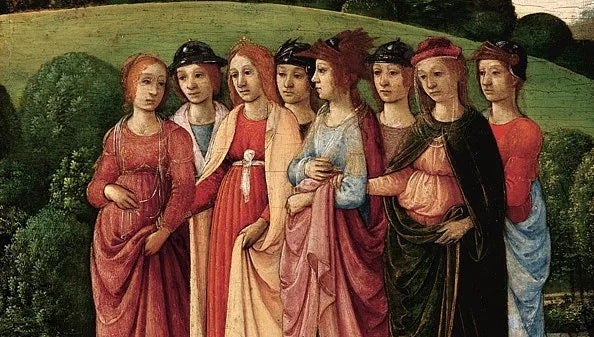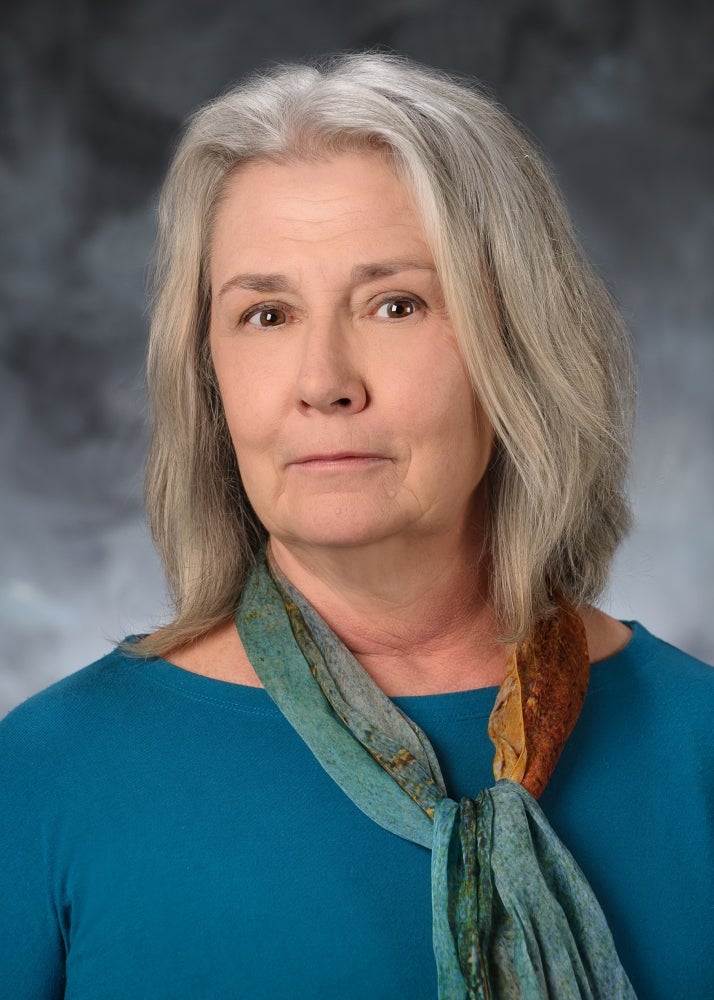
Deciphering Life in the Middle Ages

Like a lot of people, Carol Lansing is anxiously waiting for word it is safe enough to once again travel to Italy. What makes her unique is that, when that long-desired day arrives, she won’t just be jetting to another continent. She’ll also be traveling in time.
The UC Santa Barbara professor of history will be spending her time not on Lake Como or a Venetian canal, but rather in libraries and archives, poring through legal documents and other artifacts from the 13th century. Her goal, as it has been for decades, is to get a better understanding of life in the Middle Ages, and especially how gender issues played out in pre-Renaissance era.
Her lifetime of distinguished work has now earned her a prestigious honor. Lansing has been named a Fellow of the Medieval Academy of America — a status given to fewer than 5% of the organization’s members. Her induction will be made official during a ceremony at the University of Virginia in March.
“Professor Lansing is particularly deserving of this award because she is one of the most distinguished historians of medieval Italy,” said Sharon Farmer, UC Santa Barbara history professor emerita, who will attest to Lansing’s accomplishments at the ceremony. “She has made significant contributions to the fields of religious, gender and political history, as well as to the emerging field of the history of emotions.”
Lansing’s reaction to the honor is a bit more bemused. “It used to be an old boys club, but now girls are getting in,” she says with a chuckle.
Lansing has been breaking barriers her entire life. Her father, an economics professor, had a passion for archeology, and when she was a junior in high school, he took the entire family on a bus trip from London to Mumbai, stopping to admire various cathedrals and ruins. “People were not used to seeing young American girls wandering around in that part of the world,” she recalled.
Inspired by such journeys to study history at the University of Michigan, she was fortunate enough to find a female mentor: Sylvia Thrupp, a well-known scholar of the Medieval period. Lansing went on to earn a Ph.D. in Medieval history from that same school, and gradually focused her research on Italy.
That decision was, in part, practical: She notes that a number of Italian cities retain “an astonishing volume of archival records” that date from the Middle Ages. But it also reflects the richness of this particular time and place.
“It was in Italy that the first autonomous communes formed,” Lansing noted. “This was the first time collectives of individuals created their own self-governing towns. They struggled to figure out how to do it, and had really interesting conversations about what it takes to live a good, peaceful life in an urban community. Their struggles, and the solutions they found, still resonate today.”
As an example, Lansing cites the laws that restricted the way people could grieve at funerals. “I was working in a beautiful little Italian town on another project when I ran into a whole bunch of court cases in which hundreds of people sentenced for violating funeral laws — almost all of them men,” she said. “They were fined for going into the street and wailing and tearing their hair and ripping their clothing in expressions of solidarity and grief.”
After doing much research, “I ultimately came to think that it was an obligation of men to grieve in a histrionic way. But this came to be seen as something that could inspire violence — vendettas and even civil war. So a whole new discourse was created in which this was something women did, but not men. There’s a dramatic transformation at the end of the 14th and beginning of the 15th century. It’s a really interesting moment of ambivalence about powerful emotion and the nature of masculinity.”
That revelation led to still more research on the status of women in the period, including the paradox that, in some ways, poor women had more freedom than rich ones, who were expected not to dishonor their families by speaking out. When she was in graduate school, Lansing recalls, “People kept pushing me to get into what was then called ‘women’s history,’ because I was just about the only female around. I asked, ‘Why do I have to study women’s history just because I’m a female?’ I’ve had a change of heart since then. Now I’m obsessed with it!”
Lansing’s students, she says, have few problems connecting with this ancient culture, especially when she lectures on such topical subjects as how the authorities dealt with plagues: “There are things they find in the distant past that help them to think about possibilities in the present.”
The research itself involves spending countless hours examining legal documents, court records and private contracts, most written on parchment in abbreviated Latin. “It’s just like a big jigsaw puzzle,” she said. “It’s fun if you like that kind of puzzle, and don’t mind sitting in a library for very long periods. For me, it’s a treasure hunt.”
While that search for gold sometimes proves futile, there are welcome diversions along the way.
“Notaries who are recording this stuff got bored and doodled,” Lansing said. “You never know when you’re going to run across a doodle in these documents — a picture of a joust, or the guy’s girlfriend. Sometimes there are lines of poetry. Particularly in Bologna, which was the center of the book trade, some of these guys created beautiful drawings.”
All in all, “I love what I do,” she said. “I’m so privileged.” And she can’t wait to get back to Italy to continue researching her latest book, about the lives of poor women of this era.
But if you think having a wide-lens historical perspective makes Lansing more sanguine about the problems of the present day, think again. Yes, certain conflicts keep recurring, but it is the newer ones like climate change that she finds terrifying. The people she studies, she notes, “didn’t have the capacity to destroy their environment.”



